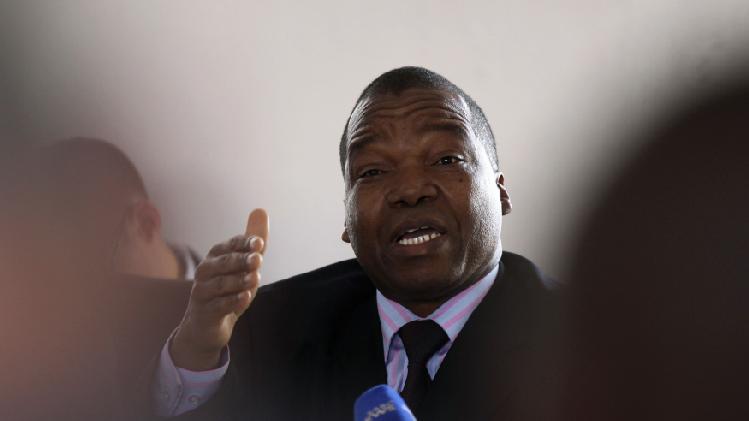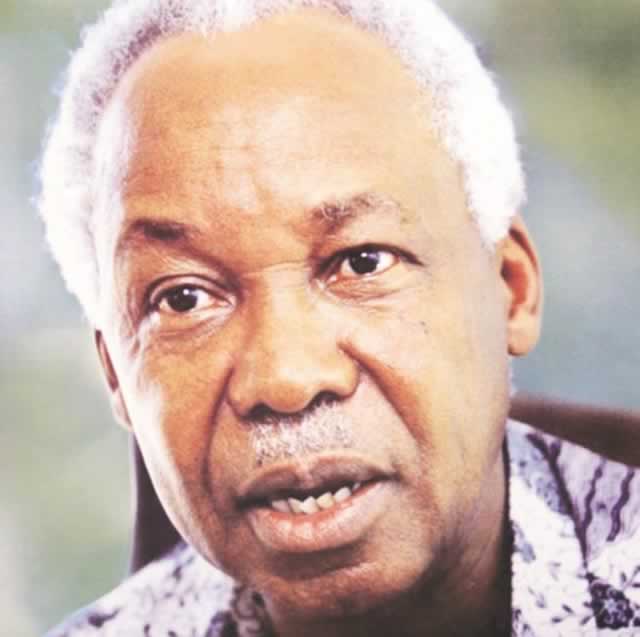Food insecurity in Africa: Lessons from Sankara

Amber Murrey Correspondent
In recent weeks, news of food crises in countries across Africa has been intensifying. From the Democratic Republic of Congo all the way down to South Africa — via Malawi, Zimbabwe, Angola and many others — low rainfall has contributed to millions more being left vulnerable. Earlier this week the international NGO, Save the Children, reported that the food shortage in the drought-affected Tigray and Afar regions of northern Ethiopia has reached critical proportions. Of the 30 million people living in the region, according to UNICEF and the Ethiopian government, one third of them — some 10 million people — are in need of emergency food assistance.
The US government is now coordinating food aid and relief efforts, announcing last month that it would supplement $532 million for emergency food assistance, safe drinking water and nutrition.
Yet, direct food aid is often destructive, particularly in the long-term, for those on the receiving end. Historical examinations of famine and the aftermaths of crisis response have shown that direct food aid, rather than reducing hunger, actually suppresses local food production and distribution systems. This market suppression, in turn, contributes to the structural inequalities that sustain uneven food distribution. Uneven food distribution within the global circuits of capitalism is at the heart of modern-day hunger.
The current drought in northern Ethiopia echoes the 2005-06 drought in the Somali and Afar Regions as well as the Borena Zone of the Oromia Region — precisely because endemic, cyclical food shortage is a product of uneven economic development and is further compounded by anthropogenic climate change.
However, hunger is far from inevitable on the continent and there is an alternative African story worth retelling, one of food sovereignty, security and self-sufficiency, and one whose lessons could be revived today. Thomas Sankara’s ecological-political praxis provides an alternative framework for food justice on the continent.
“You don’t need us to go looking for foreign financial backers”
During his short political career — which prematurely ended when he was assassinated in 1987 — Sankara argued that some of the most pervasive roots of ecological disaster and hunger were over-indebtedness and over-dependence on foreign aid structures that encourage bare survival. Not only is his political-ecological praxis and his emphasis on national food sovereignty in a context of pervasive food aid still relevant for conversations about food justice today, but the successful implementation of several ecological programs in Burkina Faso provides historical evidence for the significance of national sovereignty and collective ecological practices for cultivating food security in arid and drought-prone landscapes (such as Northern Ethiopia and Burkina Faso).
In the four years that he was the president of the West African country of Burkina Faso, Thomas Sankara courageously worked with people on projects of self-determination in the face of enormous international and domestic neo-imperialist pressures. Known for his pro-people restructuring of the Burkinabè state, his staunch anti-imperialisms and his efforts to unite African leaders to repudiate international debt, his ecological practices have been relatively overlooked until recently.
Sankara was an anti-imperial political activist-cum-intellectual revolutionary who actively and charismatically cultivated egalitarian political policies to improve the well-being of Burkina Faso’s seven million citizens in the mid-1980s. Sankara insisted that too many of the challenges that Burkinabè people faced on a daily basis — including hunger, thirst, desertification, illiteracy, gender inequality and economic alienation — were rooted in neo-colonial political and economic relationships and structures.
At the same time that the World Bank and the IMF were implementing sweeping austerity policies under the auspices of the Structural Adjustment Programs across the African continent, Sankara was engaging in a transformative and revolutionary political project.
This was a collective project to restructure the post-colonial state of Burkina Faso to ensure that state policies and political structures worked for the well-being of the people.
For Sankara, meaningful anti-colonial political projects were rooted in self-sufficiency that “refused to accept a state of (mere) survival’ and ‘open(s) minds to a world of collective responsibility in order to dare to invent the future”.
At the 39th General Assembly of the United Nations in New York, Sankara made clear the relationship between neo-imperialism and hunger in post-colonial Burkina. — Pambazuka.
Read full article on www.herald.co.zw
He said,
‘We must succeed in producing more — producing more, because it is natural that he who feeds you also imposes his will ( . . .) We are free. He who does not feed you can demand nothing of you. Here, however, we are being fed every day, every year, and we say, “Down with imperialism!” Well, your stomach knows what’s what.’
‘Even though as revolutionaries we do not want to express gratitude, or at any rate, we want to do away with all forms of domination, our stomachs will make themselves heard and may well take the road to the right, the road of reaction, and of peaceful coexistence [Applause from the crowd] with all those who oppress us by means of the grain they dump here.’
His anti-imperial language was audacious and ground-breaking but his assertions about the use of food distribution as a mechanism of control and power have since been further substantiated. This ‘dumping’ (to echo Sankara’s language) of food is, precisely, oftentimes profitable for donor countries. Since the inauguration of the US foreign food aid program in 1954, the program has been structured primarily as ‘tied aid’. Frances Moore Lappé and Joseph Collins explain that US food aid typically ‘must be grown, processed, and packaged in the United States and shipped overseas on US-flagged vessels’. An Oxfam Briefing Paper from 2006 similarly asserts that the US,
‘Sometimes uses food aid to dump agricultural surpluses and to attempt to create new markets for its exports. Indeed, food aid has the potential both to reduce domestic production of food, damaging the livelihoods of poor farmers, and to displace exports from other countries into the recipient country’.
More than twenty years before the Oxfam report, Sankara argued that humanitarian aid was counterintuitive to long-term wellbeing that would move Burkinabè society past mere survival in a neo-colonial global system. Sankara combined a formidable anti-imperialism with a conviction in the power of the people and encouraged people’s struggle and mobilisations in the face of thirst and hunger. Sankara urged the people of Burkina,
‘You are going to build in order to prove that you’re capable of transforming your existence and transforming the concrete conditions in which you live. You don’t need us to go looking for foreign financial backers, you only need us to give the people their freedom and their rights. That will be done’.
Lessons for today
Sankara lived a politics that was committed to a holistic revival of health and wellbeing – one that was inclusive of the environment, women and the masses. As Minister of Information under Colonel Saye Zerbo in 1981, Sankara pedalled to work on a bicycle. Later, one of his first acts as president was to create a Ministry of Water—this was ‘the first time the country had a ministry devoted exclusively to that essential resource’.
Meng-Néré Fidèle Kientega, who worked closely with Sankara before his death and the current Secretary of External Relations of the Burkina Faso National Assembly, said of Sankara’s commitment to ecological and food justice,
‘Even if the validity of certain commitments and actions of the Revolution are subject to debate, it is indisputable that, from the environmental point of view as well as the ecological, Burkina today would have presented a different face [had Sankara’s ecological approach survived] than the [current] decrepitude and hazardous sell of pesticides everywhere, the plastic packaging that suffocates our land and restrains our animals, and the GMOs [that proliferate] in spite of outcry and almost universal disapproval’. – Pambazuka









Comments